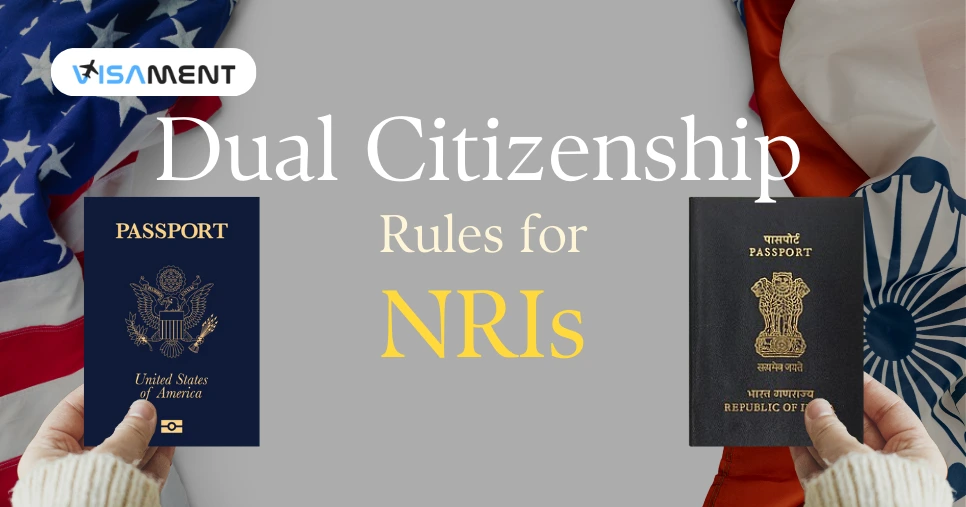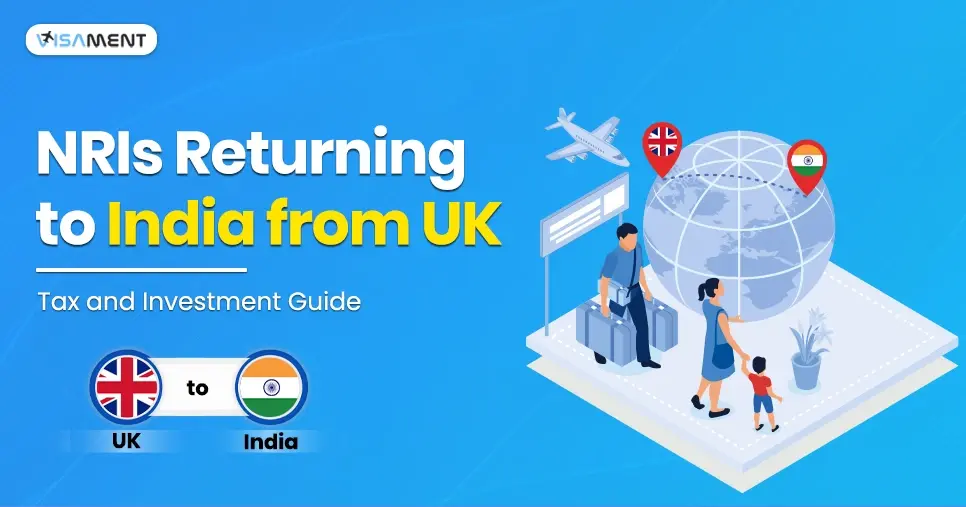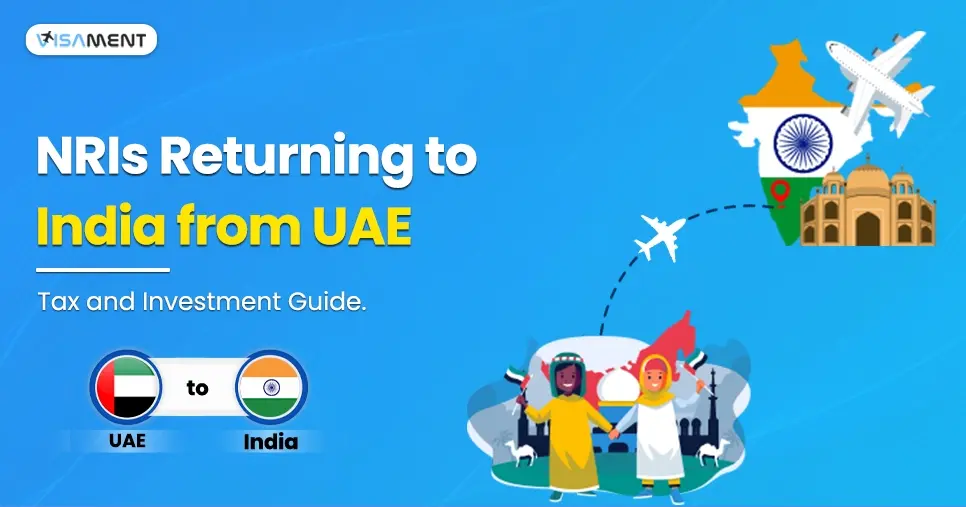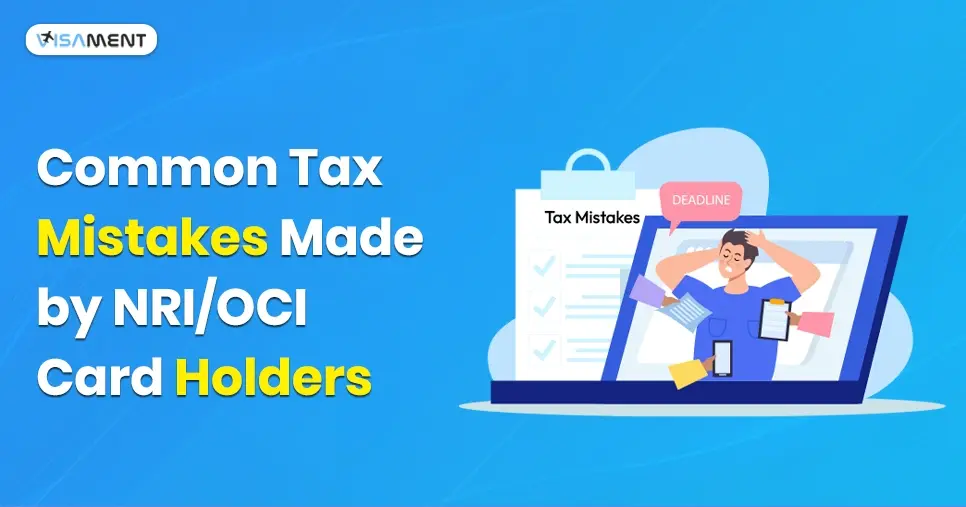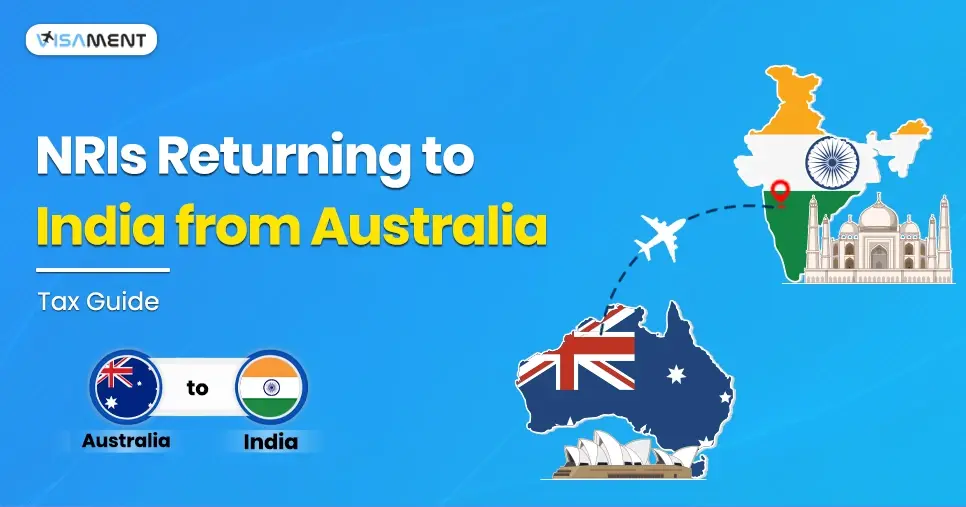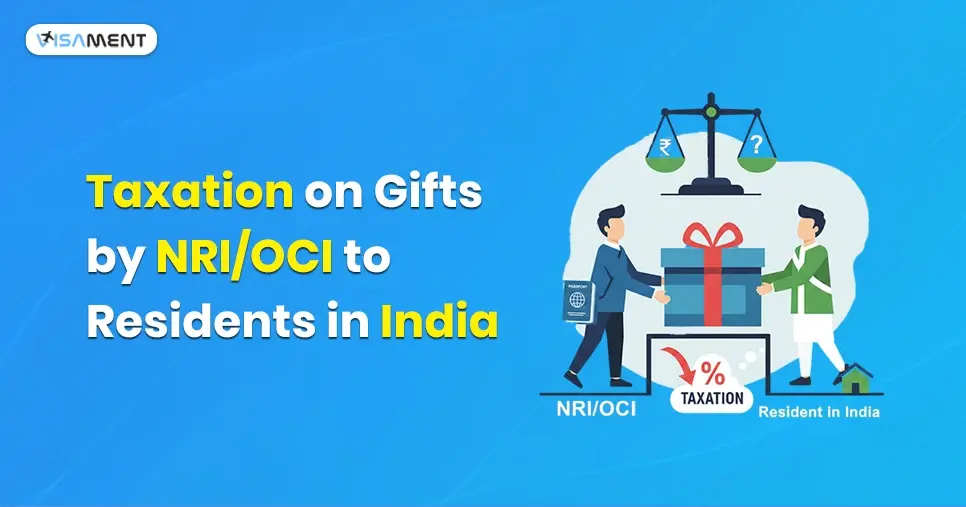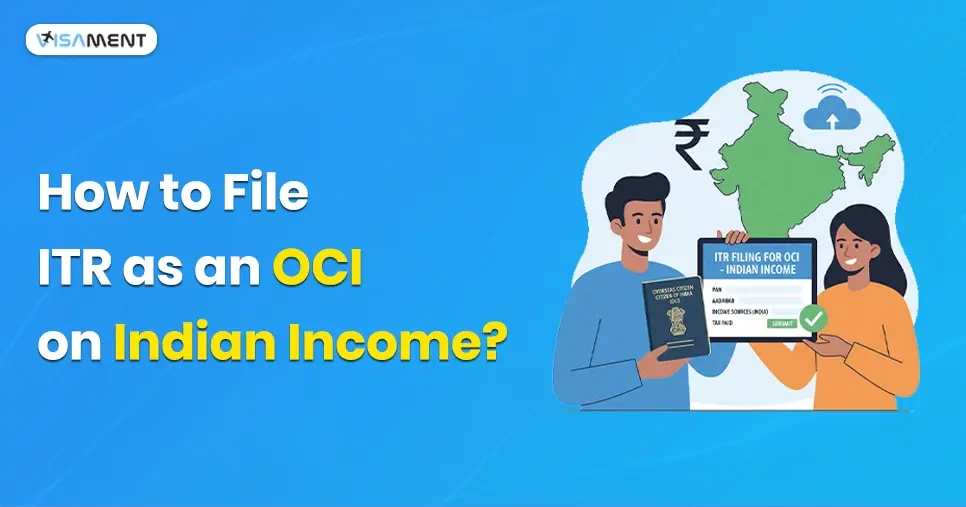India, with its vibrant culture, is also a nation that is packed with several opportunities. So, if you work or live or plan to stay there for the long term, then having Indian citizenship makes a lot of sense. However, it also comes with several duties. Want to know about it in detail? Then you are at the right place. Here in this blog, we will know the complexity of dual citizenship rules for NRIs in India. Along with it, explore the present rules and regulations and possible changes linked with the status of dual citizenship for NRIs. With this, to know more, browse down.
Perks of Dual Citizenship
Non-resident Indians (NRIs) often face the issues of legal status and citizenship in India. The stance of India on dual citizenship has always remained a topic of talk and debate. Well, there are lots of perks that dual citizenships offer to people. Let's know about a few of them:
- If you have dual citizenship, you can own assets in a foreign nation as well.
- Apart from this, it offers you access to several job options without thinking of visa rejections. In addition, you can enter into several business deals that were not available earlier with your old passport.
- Along with this, through dual citizenship, you get the chance to get a better education, healthcare, and other things. In addition, it further aids in improving your lifestyle.
- With the second passport in your hand, you can safely move to any of the two nations. It is also helpful during economic or political issues in either nation.
- In addition, if you get dual citizenship of a nation that has a stronger passport than your home nation, you can travel to more places with the perk of a visa on arrival.
These are the following perks that dual citizenship offers to people. However, it is well known to everyone that India does not allow this. An Indian citizen can choose to get a second passport from another nation. However, for this, he/she need to surrender their Indian citizenship. Moving ahead, let's know how to obtain dual citizenship in India.
How to Get Dual Citizenship in India?
As stated above, the Indian Constitution does not offer any provision for multiple or dual citizenship. According to the Passport Act of 1967, every Indian citizen must surrender their passport to the nearest embassy. It should be done after getting citizenship in another nation. Not doing so can involve them in legal issues. With this, after getting citizenship of a foreign nation, they can apply for Overseas Citizens of India (OCI) status. Moving ahead, to get dual citizenship, one should fulfill these needs:
- As per articles 5,6, and 8, people who apply for foreign citizenship will cease to be citizens of India.
- In addition, they should surrender their Indian passport at the nearest Indian embassy. Also, submit the papers that state their Indian citizenship.
- The people will assume the foreign state's nationality for which they applied for citizenship.
Although India does not have any such rules for dual citizenship. However, people can obtain an OCI Card that offers several perks. With this, it was all about how one can apply for dual citizenship in India. Moving ahead, let's know the present rules of it for NRIs in India.
Stop worrying about delays. Apply now and get your OCI card on time with our expert service.
Current Dual Citizenship Rules for NRIs in India
The current dual citizenship rules for NRIs in India state that a person cannot hold residency in two nations. If he/she want to become an Indian citizen, they need to give up their original citizenship. Here, the Overseas Citizen of India (OCI) scheme can be said to be a replacement for it. Moving further, let's know the dual citizenship rules for NRIs in India:
Dual Citizenship Bill
A dual citizenship bill proposed in the Parliament of India aims to solve this issue. It was introduced by Shashi Tharoor, Congress MP. The bill seeks to change Article 9 of the Constitution of India. It means allowing foreign people of Indian origin to hold dual citizenship. In addition, if accepted, this change would impact the diaspora of Indians globally. In addition, it will boost closer ties between people with their original nation.
Role of OCI Card
In reply to the request for dual citizenship, in 2006, the government. Introduced the Overseas Citizen of India. Any NRI who wants to remain an Indian citizen and enjoy several perks can apply for OCI status. Through this, foreign people of Indian origin can work and live in India for a long time. In addition, with the OCI card, they can stay in the nation without registering with the police and reporting to officials. Also, they have the same rights as the Indian Native Americans. Though holding public office and voting rights are not in it, they must still follow the Rules and Regulations for OCI Card Holders.
At present, there are two dual citizenship rules for NRIs in India. However, NRI and OCI are considered two distinct things. Although their rights and perks are the same, they do have differences. Want to know what it is? Read the next section and get your answers.
OCI and NRI: Knowing the Difference Between Them
The key difference between NRI and OCI is that NRIs are Indian citizens living abroad. In contrast to this, an OCI is a foreign national of Indian origin. An NRI can apply for an OCI card after giving his/her Indian citizenship. Moving further, let's know about them in detail:
|
Basis |
Non-Resident Indian (NRI) |
Overseas Citizen of India (OCI) |
|---|---|---|
|
Citizenship Status |
Citizens of India |
Foreign citizen |
|
Eligibility |
Indian applicant who lives outside India for more than 182 days in an accounting year. |
An Indian-origin individual who is a citizen of another country. |
|
Visa Needs |
Need a visa to enter the country. |
With lifelong visa-free travel granted a multiple entries in India. |
|
Work Rights |
Without a valid employment visa cannot work in India. |
Does not require a visa to work in India. |
|
Residency Rights |
Cannot live in India for more than 182 days in an accounting year. |
Can live in India for an indefinite time. |
|
Voting Rights |
Not allowed to vote in Indian elections. |
Cannot vote in Indian elections. |
|
Property Ownership Rights |
Can own any property in India, but is restricted from having any plantation assets like agricultural land or a farmhouse. |
Can own any property in India, but is restricted from having any plantation assets like agricultural land or a farmhouse. |
|
Public Rights |
Not allowed to hold public office in India. |
Prohibited from holding public office in India. |
|
Taxation |
Tax rules for NRIs are that they are liable to pay tax on the income they earn in India. |
Liable to pay tax on the income earned in India. |
These are the main differences between NRIs and OCIs. Although both of them do hold some similarities in their rights. Now, moving ahead, let’s know the rules under NRI dual citizenship.
Rules Under NRI Dual Citizenship
These are the following rules that come under NRI dual citizenship:
Investment and Banking
Compliant with the Foreign Exchange Management Act (FEMA) and Income Tax Laws, NRIs can hold specific bank accounts. It involves NRO, NRE, and FCNR. In addition, they cannot invest in the Indian government. schemes. It includes the Post Office and Public Provident Fund Schemes. Also, doing so can put them in legal trouble.
Tax Rules
If they are no longer natives of India, the Income Tax Act states that NRIs should pay tax on their global income. However, they can travel and rent property in the nation without breaking the tax laws of India, provided they stick to specified rules.
Property Ownership
While NRIs are allowed to buy business and private assets in India. However, they are not allowed to own a farmhouse or agricultural land. With this, the property deal should be done in rupees from an NRO Account of an NRI.
Legal Framework
Including the FEMA, Income Tax Act, and the Aadhar Act, NRIs are controlled by several laws in India. These state legal accounts, taxable income, investment, and eligibility for the Aadhaar card. Also, under the FEMA Act, you are an NRI from the day you leave India for an unstated time.
These are some of the rules that NRIs need to follow while living or working in India. Although the nation does not allow dual citizenship to NRIs, it offers several perks. It includes having a property in India, working on a visa, and more. So, it is upon the person and their choice whether he/she want to be an NRI or a foreigner.
Juggling Between Two Nations? Visament Can Help You
The dual citizenship status for NRIs in India always remains an evolving and dynamic subject. This was all about the rules of it for NRIs, although there are no orders for them under it. Still confused about whether to be an NRI or apply for an OCI status in India and enjoy the OCI benefits? Seek help from expert guides like Visament. Our team here aids you in making the right decision as on your choices. Also, they will make the whole process easy for you. So connect with us now and stop juggling between two nations.
Frequently Asked Questions
Although some Indian politicians have spoken in favor of dual citizenship in India. In this respect, the OCI scheme is one such concession. However, the traditional reason India does not allow dual citizenship is according to it citizenship is a commitment towards a nation and it believes that a person cannot remain truly loyal to two nations at one time.
Giving up Indian citizenship means you are no longer entitled to get support from the Indian Embassy if you are abroad. In this case, the rights, laws, and responsibilities of the new state will be applicable. It means that as any other citizen, you might be obliged to serve in the military, vote, and so on. With this, when you come back to India the same rules will apply to you like the other citizens of your adopted nation and you need a visa to travel to India.
Possessing two passports in India is considered an offense and it comes under the Passport Act as the nation does not allow dual citizenship. It means you need to legally surrender your Indian passport once you get citizenship of another nation. However, if you fail to do so you need to pay a fine and potentially imprisonment depending on the situation.
Yes, with an OCI card by your side, you can permanently live in India, significantly granting you a form of permanent living, allowing you to live and work in the nation indefinitely. However, as it is not Indian citizenship, it does not provide you the voting rights and holding public office.
To become an Indian citizen by naturalization an individual with a preceding application need to live in India for 12 of 14 years and aggregate eleven years within the last fourteen years. In addition, it also includes the complete calendar year of the citizenship application.
Through naturalization, if you take citizenship of another country you automatically lose the Indian citizenship. Also, if you want to voluntarily leave your Indian citizenship you are free to do so.
